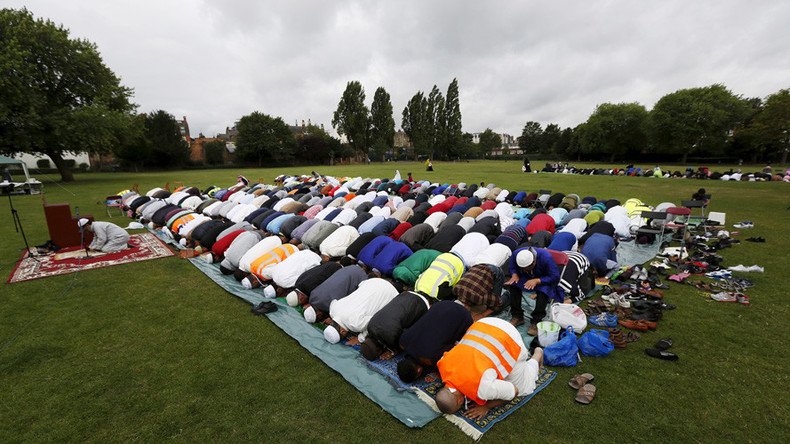British Muslims take fight against extremism into their own hands

British Muslim leaders are set to launch their own anti-radicalization initiative as an alternative to the government’s controversial Prevent program, which critics have widely derided as ineffectual and discriminatory.
The Muslim Council of Britain (MCB) is planning to start the scheme next year. It will be run by a network of Muslim community groups across the country.
Unlike Prevent, a government-run program that relies heavily on police and security agencies, the new plans are expected to work together with Muslim communities to deter young people from the lure of terrorism.
Mosques are likely to be central to the initiative. Panels of community leaders, former police officers, and mental health professionals are set to support the scheme, the Guardian reports.
Miqdaad Versi, assistant secretary general of the MCB, told the BBC Radio 4’s Today program: “We need Muslim communities and all communities to be working together as equal partners to tackle the scourge of terrorism.”
“We need the government to be talking to Muslim communities, listening to Muslim communities,” he said on Thursday.
“They [the government] don’t want to talk to the Muslim Council of Britain.”
Prevent has been condemned by rights groups, campaigners and religious leaders as counterproductive by alienating the very people it seeks to help.
In 2015, in a new and divisive iteration of the policy, the government called on schools and other public bodies to monitor for and report signs of radicalization in minors.
Guidance on the policy, however, remains vague on what such signs could be, prompting critics to condemn the program as little more than a surveillance scheme for Muslims.
David Anderson, the independent reviewer of terrorism legislation, said earlier this month: “There is a strong feeling in Muslim communities that I visit that Prevent is, if not a spying program, then at least a program that is targeted on them.”
The government defended Prevent.
“People referred under Prevent are absolutely not considered or treated as criminals. The strategy is about spotting early signs that someone is vulnerable and providing support to make them more resilient to grooming by terrorist recruiters,” a spokesperson said.














